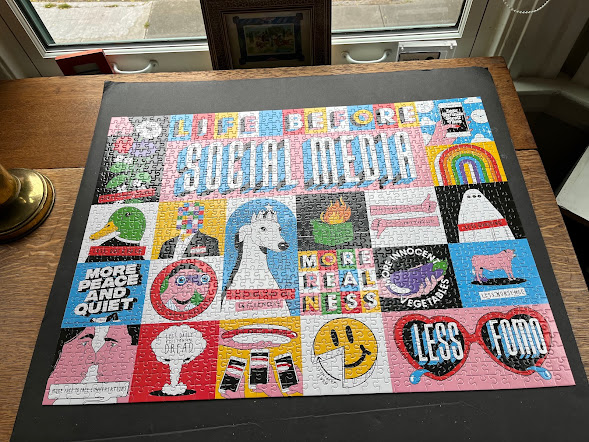I filled out a survey recently and it asked “How do you self-identify in terms of race and ethnicity?” There’s a provocative question!
I’m Jewish by blood, Unitarian by upbringing and Buddhist by choice, with a New Jersey small-town childhood brought up by Leave It to Beaver TV and an urban Californian adulthood.. I’m a 71-year old straight cisgender “white” man with mixed-race grandchildren who had a black Orff mentor, a Japanese Zen teacher, a Hindu South Indian drum teacher, who taught for decades with a Spanish woman and gay man and still travels with them both often to Ghana to teach with a Ghanaian musician. We also work together with a Brazilian man, a Catalan man and an American woman living in Germany in an International Orff Course with students from some 25 different countries. I’m an Orff teacher who learned a Japanese children’s game taught by a Spanish-German colleague while teaching together in Estonia with a Finnish teacher, a teacher who has given Orff Courses in over 50 countries and teaches in Spanish throughout Spain and in Mexico, Colombia, Argentina, Chile, Brazil, Portugal and even Italy, who recently performed Indonesian-American kecak chant and African American Juba rhythms with Iranian women in Istanbul. Shall I go on?
I live at the crossroads of many cultures. My personal pronoun is “we” and I respond to all from the place of our mutual identity as shared consciousness with distinct and delightful cultural variations available to all who care to take the time to enter the spiritual, musical, artistic, kinesthetic, intellectual and poetic disciplines the world has to offer. Having studied a lot of European classical and American jazz piano, a little of Bulgarian bagpipe, Balinese gamelan, South Indian drumming, Brazilian samba, Ghana xylophone, Irish tinwhistle, American banjo and more, having read the poetry of Basho, Rumi, Hafez, Mirabei, Goethe, Yeats, Emily Dickinson, Rilke, Machado, Neruda, Langston Hughes, Amanda Gorman, having built and sustained my adult body with Thai miang-kum,, Vietnamese bun, Mexican burritos, Japanese miso soup and sushi, Chinese stir fries, Indian curries, Iranian jeweled rice, Middle Eastern falafel, Italian pastas, Spanish tapas, Greek salads, West African peanut soups and more, having listened to jazz piano played by the Japanese Hiromi, Brazilian Elaine Elias, Indonesian Joey Alexander, French Michel Petrucciani, Spanish Chano Dominguez, Cuban Gonzalo Rubalcaba and more. I believe that the flowers (and thorns) of every culture lives inside of each one of us and are available when approached with respect and a willingness to do the work. How else can one explain Joey Alexander, born in Bali, raised in Java, hearing a Thelonious Monk recording at 7 years old and figuring out his tunes on his keyboard and a mere four years later, brought by Wynton Marsalis and others to the U.S. to record jazz, a style completely outside of the Balinese and Javanese culture, at 11 years old?!!
To be culturally responsive is to develop the ability to respond to the invitation to realize our full humanity that each culture offers. To see the universal in the particular and the particular in the universal and celebrate both equally. I reject the tribalism of the right-wing determined to continue a legacy of exclusion, domination and unearned privilege and equally reject the tribalism of the left wing insisting on exclusive identities available only to those born into them and dare you try to join in, the hammer of cultural appropriation will fall swiftly on your head.
But at either extreme, neither climate change nor pandemic viruses care what identity you profess and hold on to. Survival depends on the “we” pronoun, beginning the conversations that are needed to both survive and thrive. I can testify that such conversations are not only possible, but delightful, held in the recent Collective Trauma Summit online, in the work Keith Terry has done in the International Body Music Festival (hey! we all have bodies and can enjoy slapping them rhythmically!), in the work I have tried to do teaching Orff Schulwerk worldwide. When right-wing Alabama prohibits saying “Namaste” in schools because the Hindu devils will incarnate in the children and when left-wing California prohibits the same unless you’re a card-carrying Hindu Indian (under the flag of “cultural appropriation”), the needed conversations die on the vine. All the more ironic, as Namaste says, “The divine in me greets the divine in you.” Indeed. Let us organize our thinking, our teaching, our living, around this fundamental truth, no matter what identity you claim as “me” or “you.” Pure consciousness knows no race, religion, gender or cultural identity.


